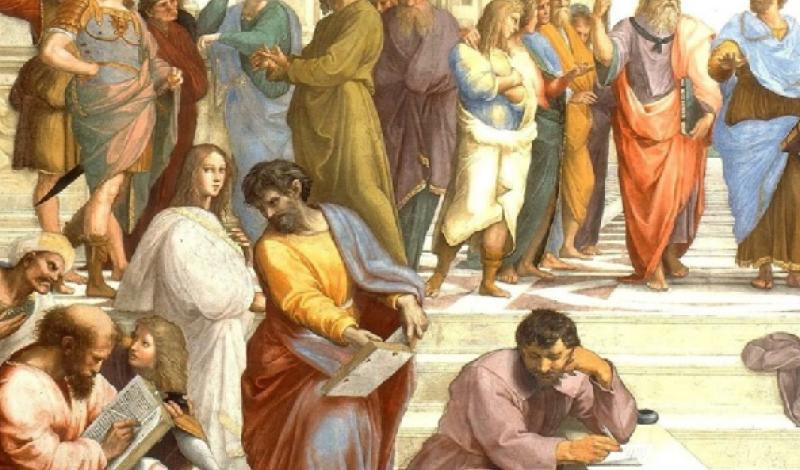
The PhD students of the course in Humanities (38th and 39th cycles) at the University of Foggia are pleased to invite you to participate in the first edition of the Doctoral Conference of the Department of Humanities and announce the opening of the Call for Papers aimed at PhD candidates, young researchers, and scholars. The Conference is focused on the different modes of knowledge transmission, to be framed from a philological, linguistic-literary, and archaeological perspective.
Even the most genuine and pure tradition does not persist because of the inertia of what onceexisted. It needs to be affirmed, embraced, cultivated. Hans Georg Gadamer (from ‘Truth and Method’).
The transmission of practical advice, the encyclopedia of objective knowledge, is thus anchored in the narrative memory through the subjective experience of emotional and moral life. Italo Calvino (from ‘American Lectures’).
Investigating the methods and forms of preservation and enrichment of cultural heritage over time requires specific attention to the means by which the process of preservation, transmission, and dissemination of knowledge has occurred and continues to occur (from manuscripts to audiovisual devices, up to today’s digital technologies), to the places designated for such purpose (libraries, schools, museums, archives, writing clubs, etc.), as well as to the actors in the process itself. Exploring the relationship between master and learner is also intriguing, as this topic could be examined in its various manifestations from antiquity to the present day, along with the influences exerted on it by tools, methodologies, and contexts of transmission and learning.
In keeping with the very nature of the PhD the purpose of this Conference is to promote an interdisciplinary dialogue on this topic and to develop a reflection that effectively intersects – on both a diachronic and synchronic level – the study perspectives of various areas of the humanities.
The Conference will be held on 3 september and 4 september 2025, at the University of Foggia.
For further information, please contact the Organizing Committee at the following e-mail address: convegnoscienzeumanistiche@gmail.com.
Scientific Committee: Maria Luisa Marchi, Stefania Montecalvo, Rossella Palmieri, Gianni Antonio Palumbo, Lucia Perrone Capano.
Organizing Committee: Cristina Colangelo, Livia D’Antino, Francesco Loconte, Pierluigi Iliceto, Luisa Pedico, Maria Teresa Riccelli, Annasara Bucci, Alessia Russo, Grazia Dibenedetto, Anita Malagrinò Mustica, Michele Notarangelo, Alice Ostuni, Giuseppe Pasculli, Grazia Savino, Maria Tomaciello.
The Call for Papers is open to PhD students, early-career researchers, and young scholars. Interested parties should submit their application by sending a .pdf abstract of no more than 300 words (excluding title and references), along with a brief academic bio. Please send your proposal to the Conference email address: convegnoscienzeumanistiche@gmail.com. In the subject line, please include: “Doctoral Conference Proposal”. Submissions will be accepted in both Italian and English. There are no registration fees.
The deadline for submitting proposals is 31 May, 2025. The Conference will be held on Wednesday 3 September, and Thursday 4 September 2025, at the University of Foggia. Each presentation will be allotted a maximum 15 minutes, and presenters are required to deliver their speech in person. For further information, please contact the Organizing Committee at the following e-mail address: convegnoscienzeumanistiche@gmail.com.
We welcome proposals that address, but are not limited to, the following themes:
- Places of production and transmission of texts: philological-literary and historical-archaeological research, analysed from both synchronic and diachronic perspective, also through the re-reading of documentation preserved in archives using technologies employed in more recent times.
- Knowing the past to plan for the future: the study of complex landscapes. This specifically refers to the tools and research strategies applied to the archaeological study of settlement dynamics, of a diachronic nature, observed in articulated and, in some respects, challenging territorial areas.
- The transmission of knowledge in the building and manufacturing sectors from antiquity to the Middle Ages: who the craftsmen and artisans were and how they circulated; what technical and technological knowledge they possessed; what raw materials were used and what the sources of supply were; the evidence from construction sites and production locations.
- The dissemination of knowledge from oral tradition to digital communication: from Greek theatre, the heart of the polis, through the activism of magazines and newspapers, to cinema and television as mass media, not neglecting the social and cultural impact of modern digital technologies.
- The relationship with models in a perspective of continuity and discontinuity: subversion of themes, archetypal forms, or traditional paradigms, even in terms (ethical and familial) of generational conflict; the relationship between master and learner investigated in its concrete dimension and within the realm of literary representation.
Further topics are welcome as long as they fit the above-mentioned themes.

